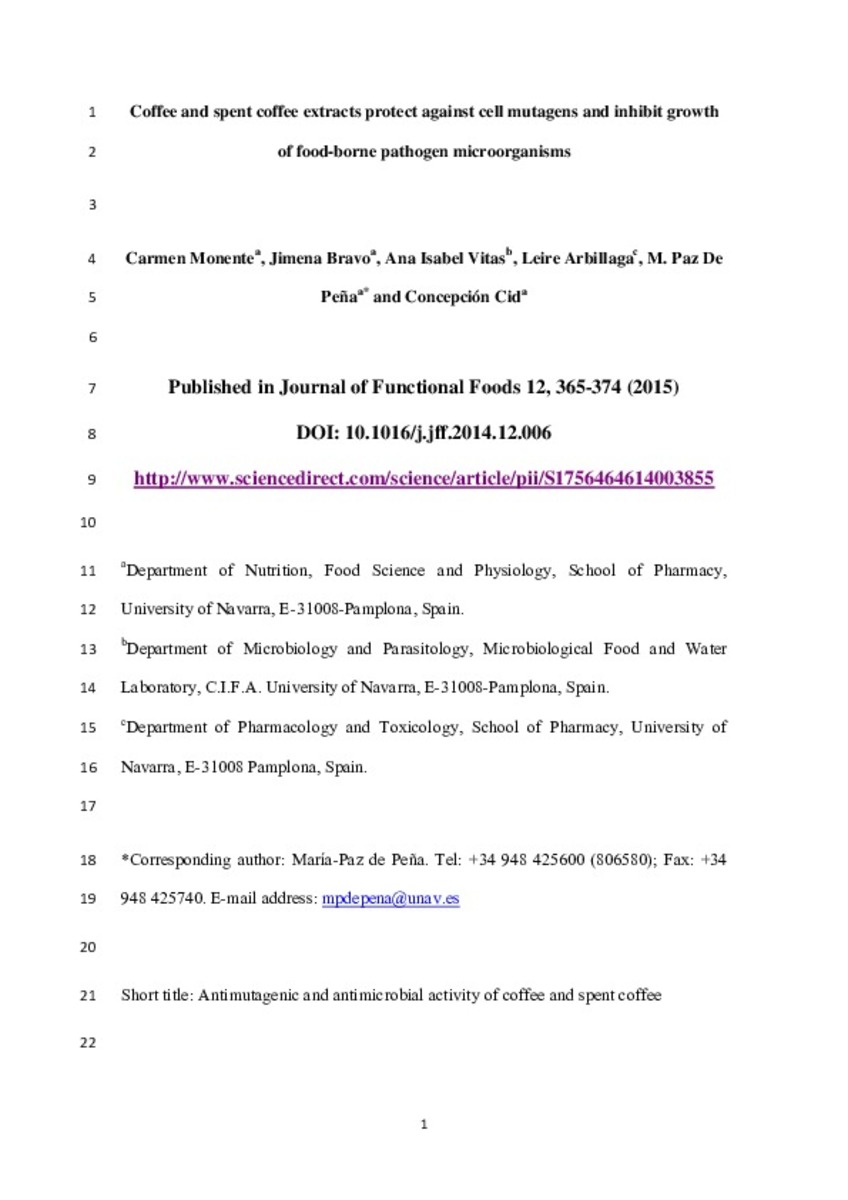Coffee and spent coffee extracts protect against cell mutagens and inhibit growth of food-borne pathogen microorganisms
Otros títulos :
Antimutagenic and antimicrobial activity of coffee and spent coffee
Palabras clave :
Melanoidins
Phenolics
Antimutagenicity
Antimicrobial
By-products
Coffee
Fecha de publicación :
2015
Cita:
Monente C, Bravo J, Vitas A.I, Arbillaga L, Peña MP, Cid C. Coffee and spent coffee extracts protect against cell mutagens and inhibit growth of food-borne pathogen microorganisms. J Funct Foods 2015 Jan;12:365–374
Aparece en las colecciones:
Estadísticas e impacto
0 citas en

0 citas en

Los ítems de Dadun están protegidos por copyright, con todos los derechos reservados, a menos que se indique lo contrario.







